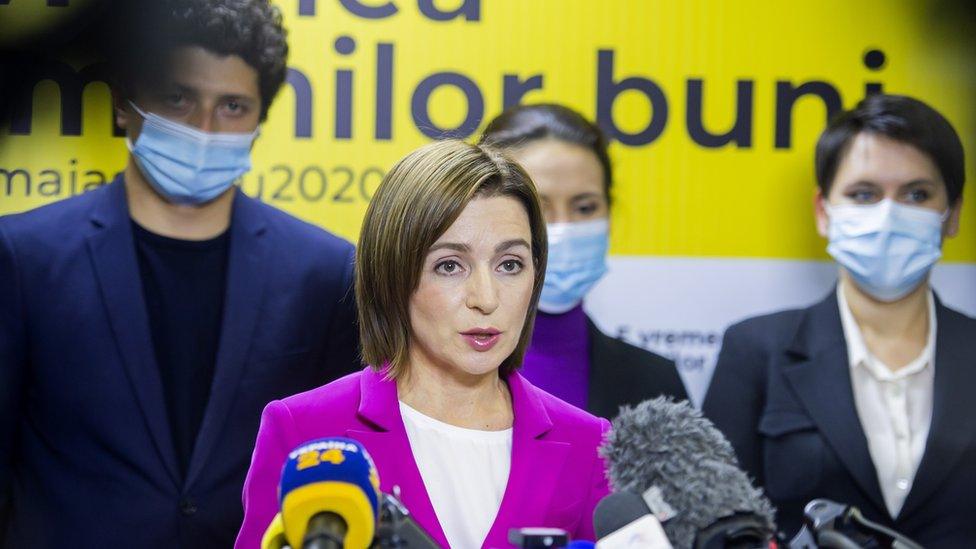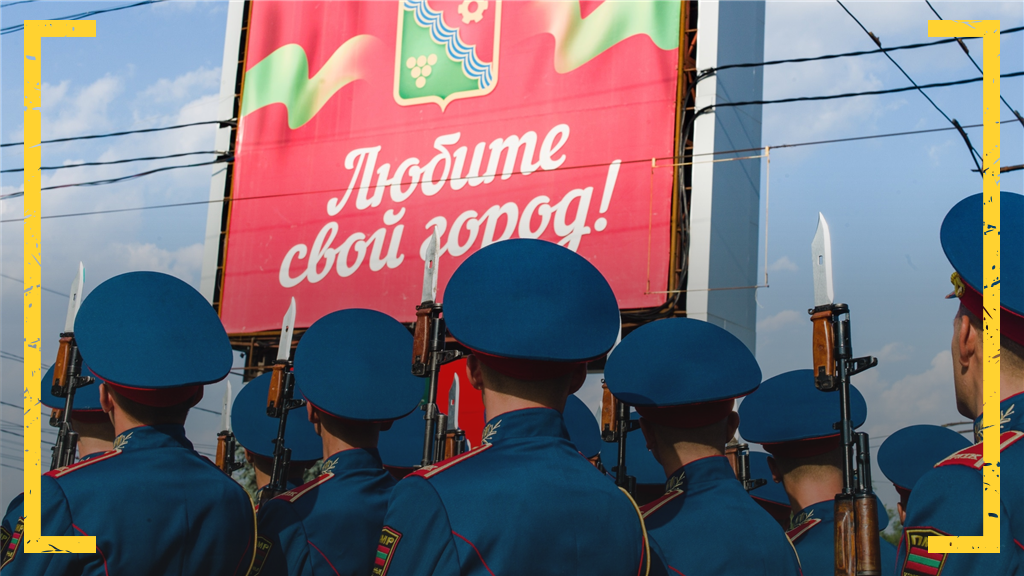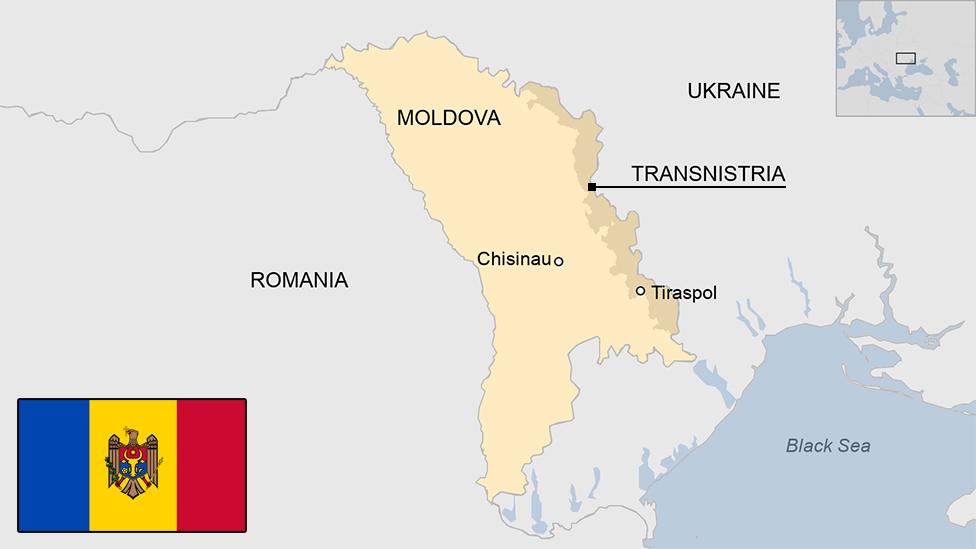Moldova's new president calls for Russian troops to withdraw from territory
- Published
Maia Sandu: "We have the right to choose what we want for our country" (2020 interview)
Moldova's incoming president Maia Sandu has called for the withdrawal of Russian troops from a breakaway region at the border with Ukraine.
In her first news conference as president-elect, Ms Sandu said Russian forces never had permission to be in the separatist area of Trans-Dniester.
The Kremlin has rejected her comments, saying the move could be destabilising.
Ms Sandu defeated incumbent president Igor Dodon, who was openly backed by Russia, in a vote earlier this month.
The 48-year-old is a former World Bank economist who favours closer ties with the European Union.
On Monday, she said Russia's peacekeeping force - the Operational Group of Russian Forces in Trans-Dniester (OGRF) - should be replaced in the Moldovan territory by civilian monitors under the Organization for Security and Co-operation in Europe (OSCE).
"We are an independent country that does not want foreign troops to stay on its territory," she told reporters in the Moldovan capital, Chisinau.
"This is not just a declaration - this is a necessity," she added, stating that she would "work with Russia for as long as it takes to solve the issue of the arms removal and troop withdrawal".
Moldova regards the OGRF as the descendants of the Russian forces that sided with Russian-speaking separatists after the break-up of the Soviet Union.
Russia has about 1,500 troops stationed in the region.
The United Nations has backed a number of resolutions calling on Russian troops to withdraw "unconditionally" from the territory, along with the weapons stockpile they are guarding there.
Responding to Ms Sandu's comments, Kremlin spokesman Dmitry Peskov told reporters in Moscow that Russia expected the authorities stationed in Trans-Dniester to remain in place.
"Russia performs a very important function," he said, adding that any change "could lead to serious destabilisation" in the region.

The separatist region of Trans-Dniester - a narrow strip of land between the Dniester river and the Ukrainian border whose main city is Tiraspol - broke away from Moldova after a brief war in 1992.
The international community does not recognise its self-declared statehood, and the de-facto government, which remains in a tense stand-off with Moldova, is economically, politically and militarily supported by Russia.
Ms Sandu, a former prime minister of Moldova, scored an emphatic victory against Mr Dodon, who Russian President Vladimir Putin had openly supported in Moldova's presidential election, in a run-off ballot on 15 November.
She has said that as president she would make it her priority to tackle corruption and unite the country. Ms Sandu is due to be sworn in as president in the coming weeks.
- Published16 November 2020

- Attribution
- Published16 May 2019

- Published4 November 2024
